Protein-Packed Foods that Will Help Fuel Your Muscles
Dietary protein is essential for building, repairing, and maintaining muscle tissue. Whether you’re an athlete or simply looking to stay strong, consuming enough protein accelerates muscle recovery, supports growth, and prevents breakdown after exercise. Including a variety of high-protein foods in your meals ensures your muscles receive the amino acids they need to thrive. Discover the top protein-rich foods that can help you reach your fitness goals.
1. Chicken Breast
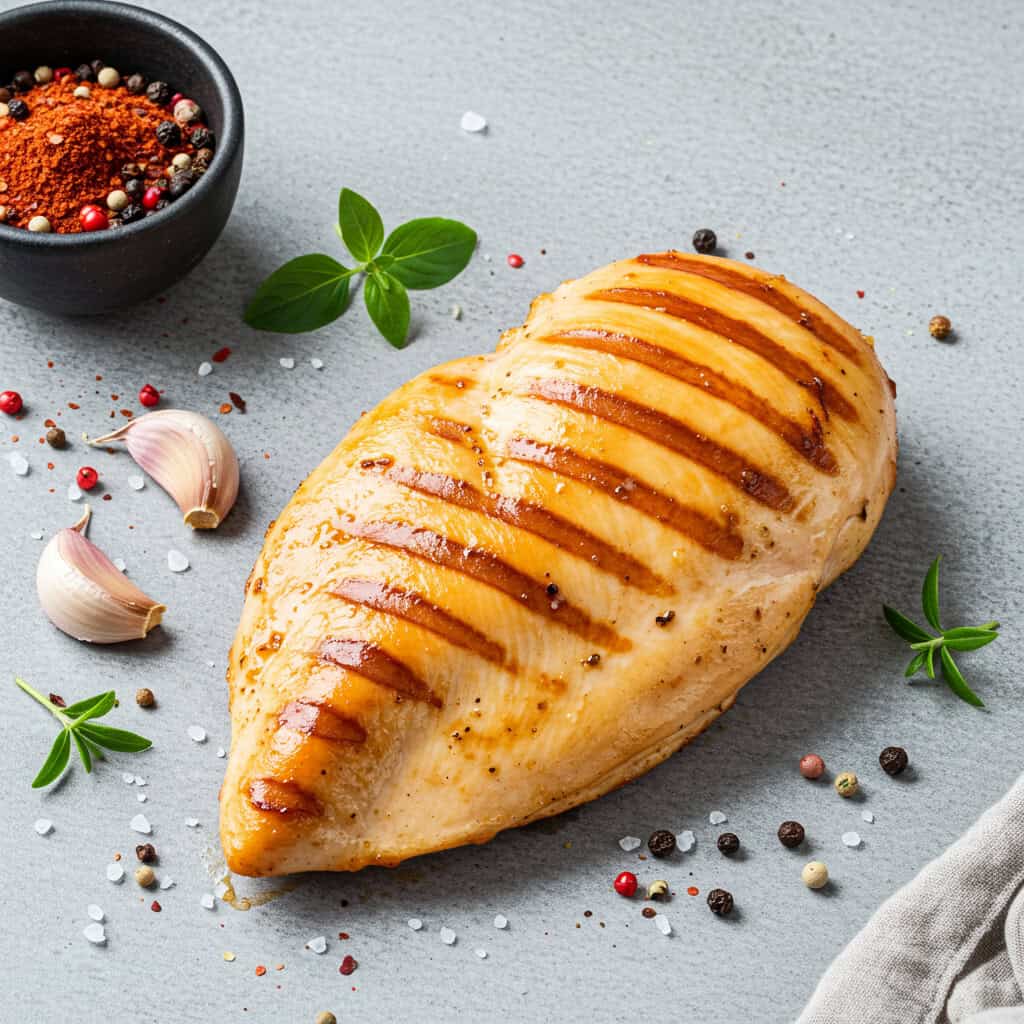
Chicken breast is renowned for being a top choice in high-protein diets due to its impressive protein content and low fat levels. As a lean cut of poultry, it provides around 31 grams of protein per 100 grams while containing minimal saturated fat, making it healthier than darker cuts like thighs or wings. Its mild flavor and tender texture offer endless cooking possibilities, from grilling and baking to stir-frying and poaching. For detailed nutrition facts, visit the USDA FoodData Central.
2. Greek Yogurt
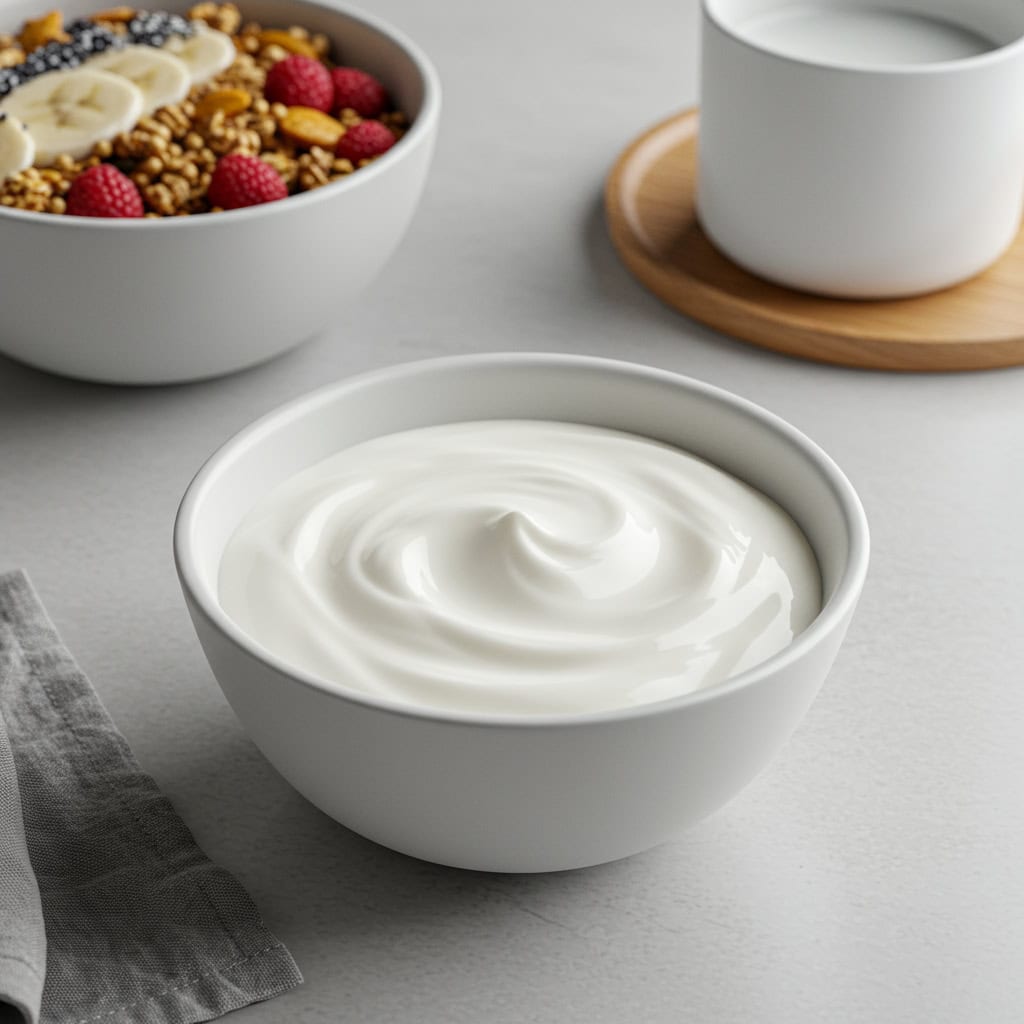
Greek yogurt stands out for its high protein density, offering nearly twice as much protein as regular yogurt—about 10 grams per 100 grams. This makes it an excellent choice for muscle repair and satiety. Besides protein, Greek yogurt delivers probiotics that support gut health and digestion. Its creamy texture and tangy taste make it a versatile option for breakfast bowls, smoothies, or as a satisfying snack. To learn more about its nutrition and health benefits, visit Healthline’s Greek yogurt nutrition profile.
3. Eggs

Eggs are widely celebrated as a complete protein source, containing all nine essential amino acids crucial for muscle growth and repair. Each large egg provides about 6 grams of high-quality protein. While egg whites are nearly pure protein and low in calories, whole eggs offer additional nutrients like vitamins, minerals, and healthy fats found in the yolk. This makes whole eggs a more nutrient-dense option, though both forms support muscle fueling. For a comprehensive look at their nutrition, visit Harvard’s egg nutrition overview.
4. Salmon
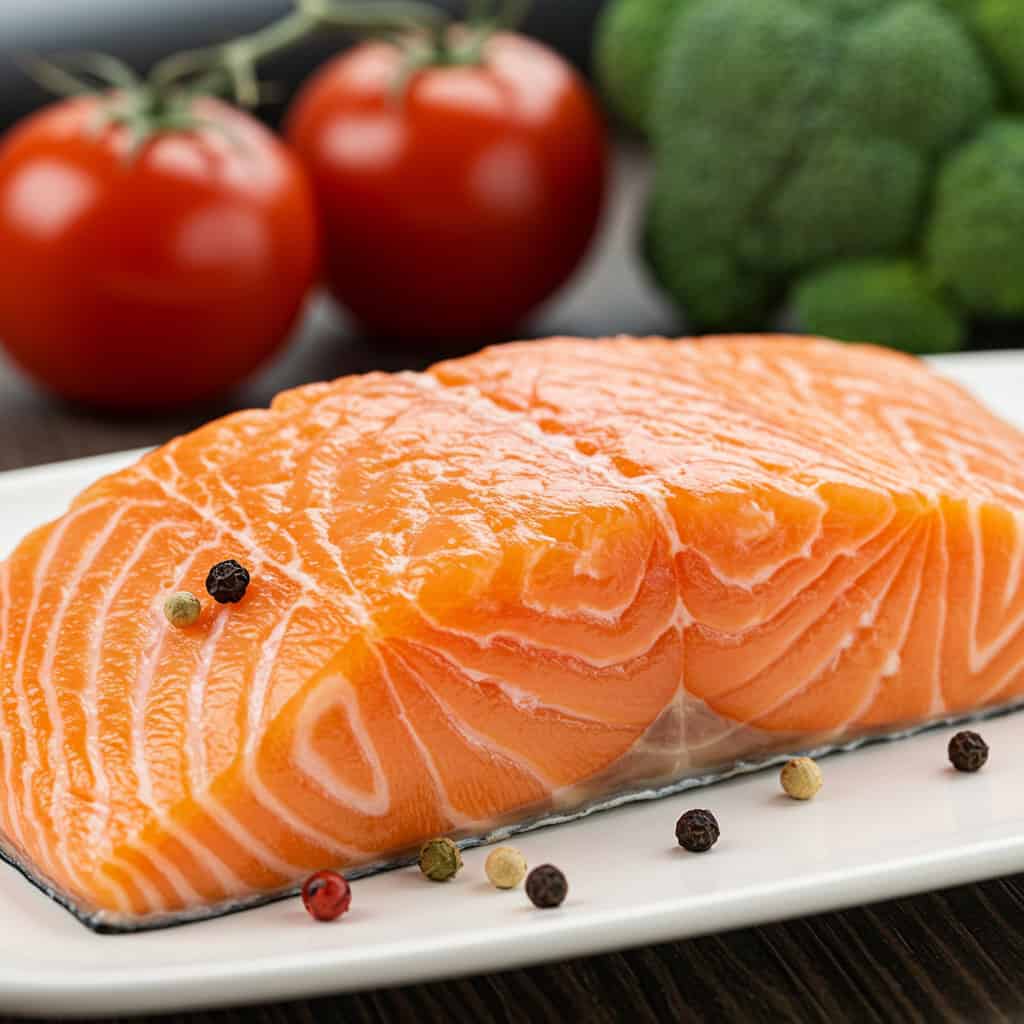
Salmon is a powerhouse protein source, delivering about 22 grams of protein per 100 grams along with abundant omega-3 fatty acids. Unlike leaner fish such as cod or tilapia, salmon’s healthy fats provide added benefits for inflammation reduction and muscle recovery. The omega-3s found in salmon also support cardiovascular health, which is vital for overall fitness and longevity. Its rich, satisfying flavor makes it a favorite among athletes and health-conscious eaters. For more on the heart health benefits of salmon, visit the American Heart Association.
5. Cottage Cheese
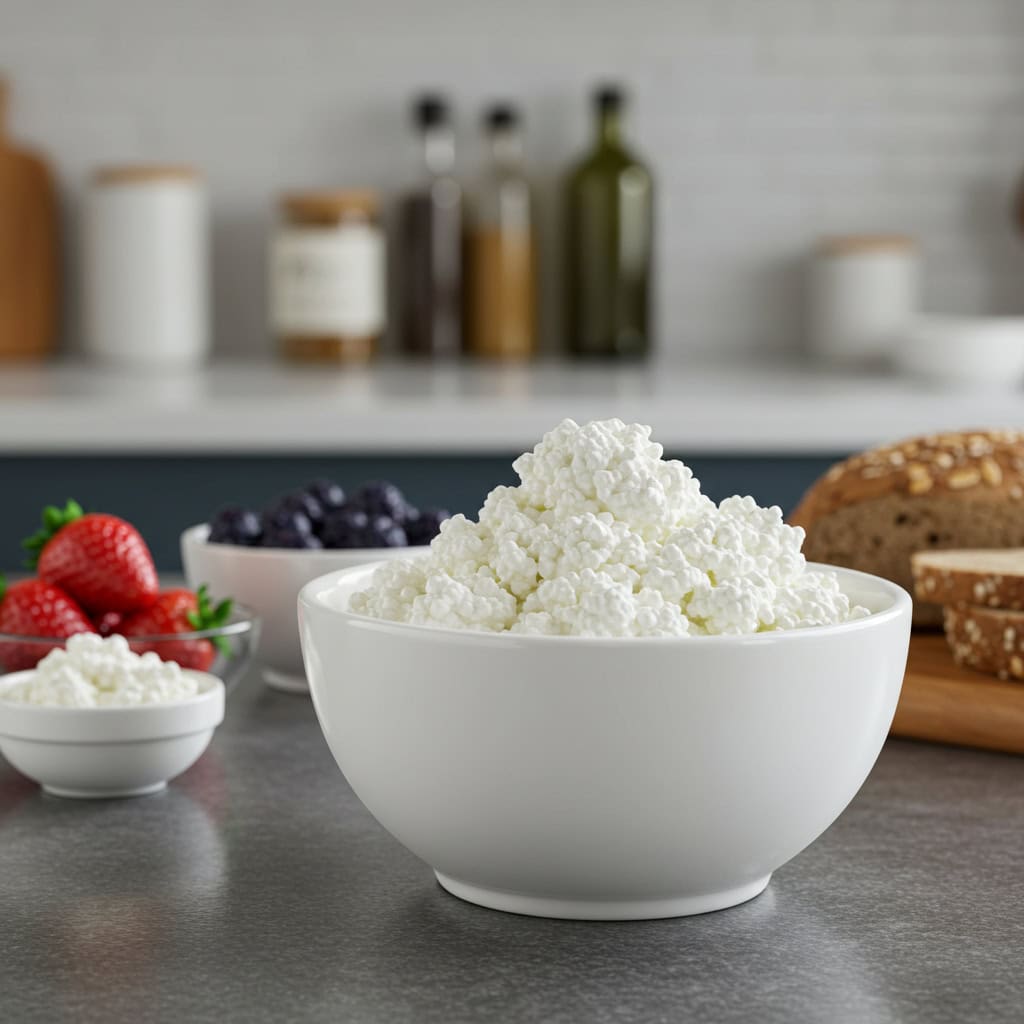
Cottage cheese is prized for its high casein protein content, a slow-digesting protein that steadily releases amino acids, making it especially effective for overnight muscle recovery. With around 11 grams of protein per 100 grams, it outpaces many other cheeses, which often contain more fat and less protein per serving. Its mild flavor and creamy texture make it a versatile addition to both sweet and savory dishes. To explore its full nutritional profile and health benefits, check out Verywell Fit’s analysis.
6. Tuna
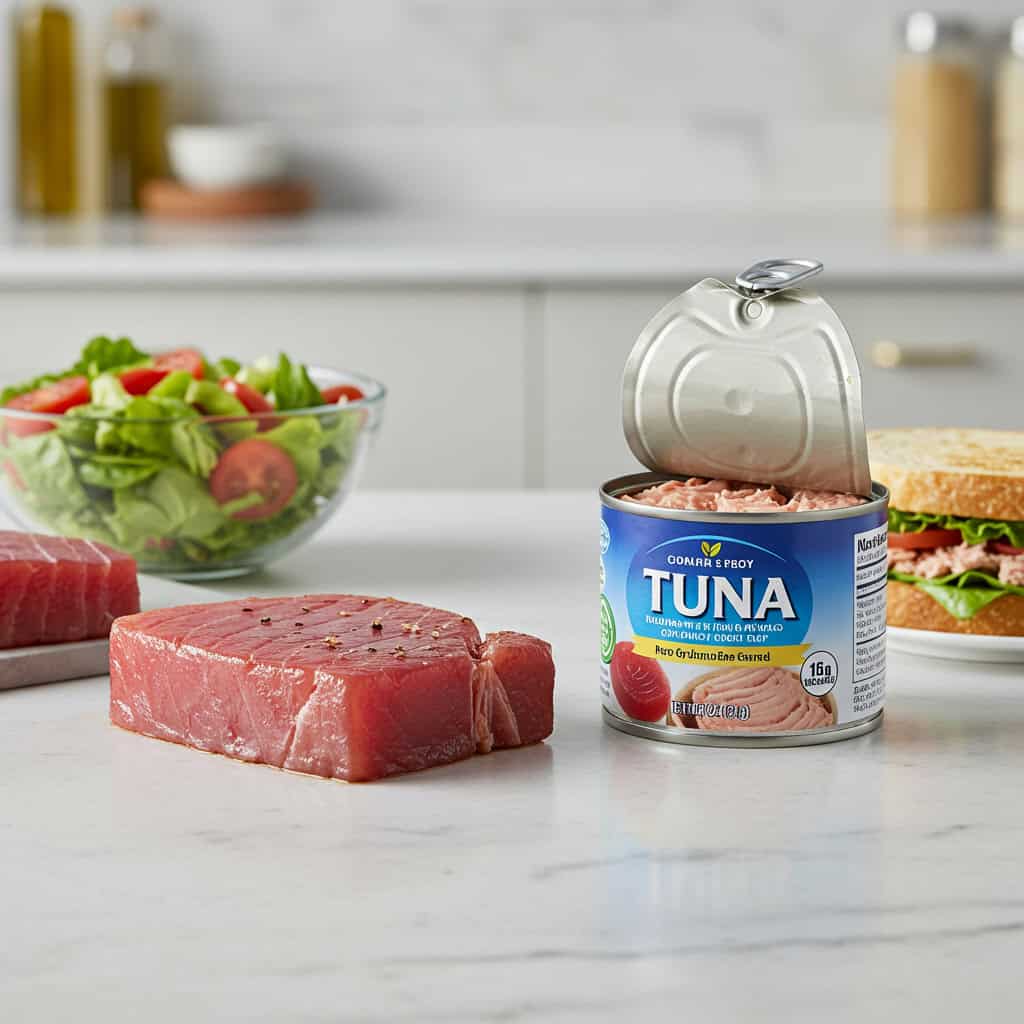
Tuna is a standout for its lean protein content, offering approximately 25 grams of protein per 100 grams with minimal fat. Whether fresh or canned, tuna is convenient and versatile—great for salads, sandwiches, or quick meals. Canned tuna is especially popular due to its portability and shelf stability, though fresh tuna offers a richer flavor and slightly higher nutrient profile. Both forms are excellent choices for muscle support. For expert advice on incorporating tuna and other fish into your diet, visit the Mayo Clinic’s fish consumption guide.
7. Lentils
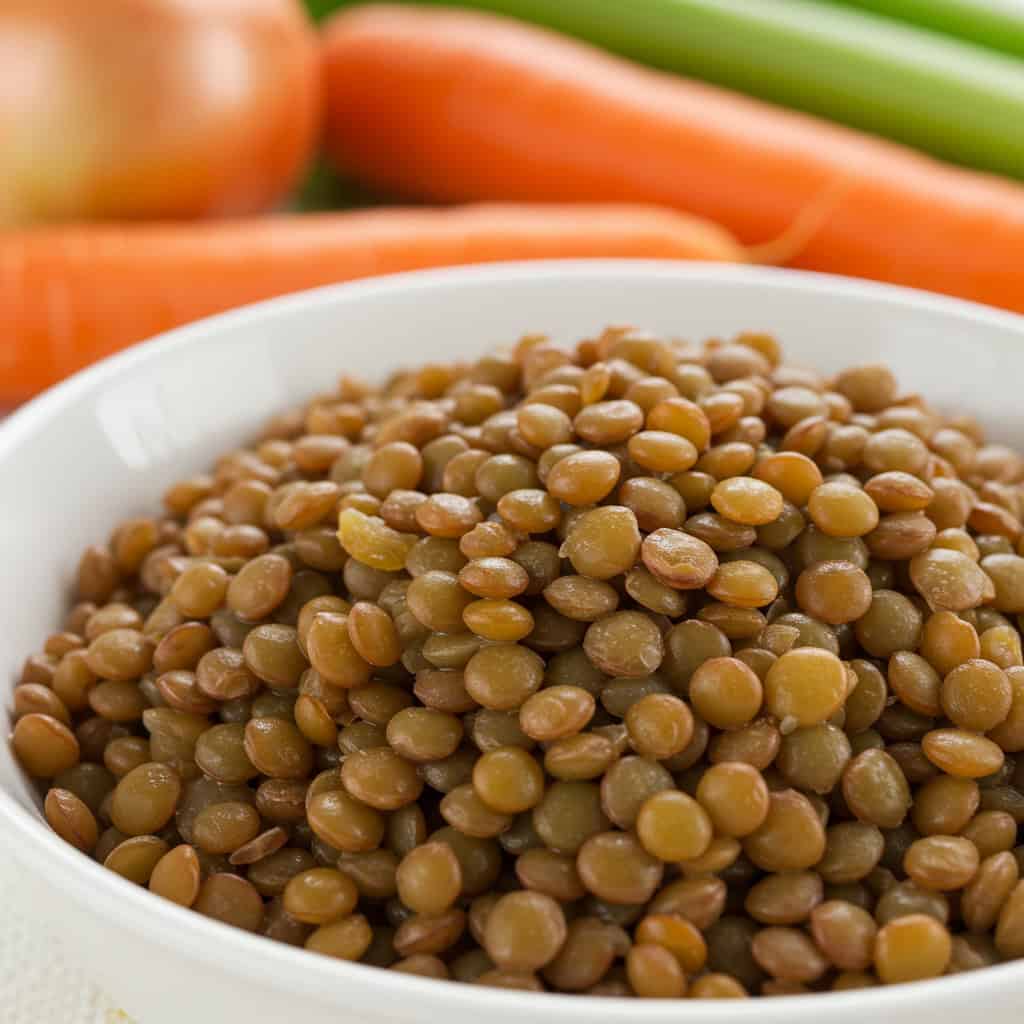
Lentils are a leading plant-based protein source, supplying about 9 grams of protein per 100 grams cooked. They’re also rich in dietary fiber, which aids digestion and supports heart health. Compared to other legumes like chickpeas or black beans, lentils cook faster and offer a similar, if not higher, protein-to-calorie ratio. Their earthy flavor and versatility make them ideal for soups, stews, and salads. Lentils are particularly valuable for vegetarians and vegans seeking to boost muscle repair. For a detailed look at their nutritional benefits, visit Medical News Today on lentils.
8. Lean Beef
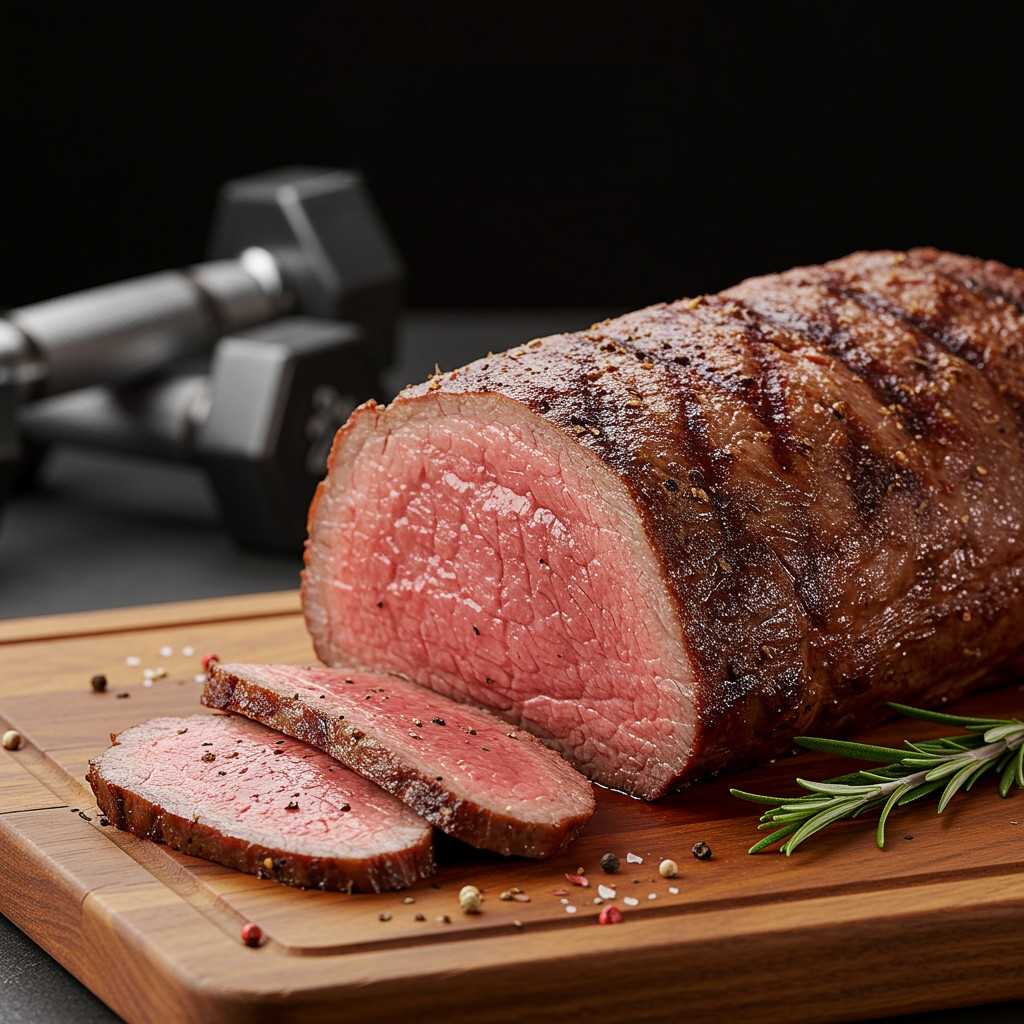
Lean beef is an excellent protein source, providing around 26 grams of protein per 100 grams along with a rich supply of heme iron, which is crucial for oxygen transport in muscles. Choosing cuts like sirloin, tenderloin, or round steak ensures lower fat content while maximizing muscle-building benefits. Lean beef can be grilled, broiled, or stir-fried for flavorful and nutritious meals. It’s important to trim visible fat and use healthy cooking methods to keep it heart-friendly. For detailed nutritional information, explore the USDA’s beef nutrient database.
9. Tofu
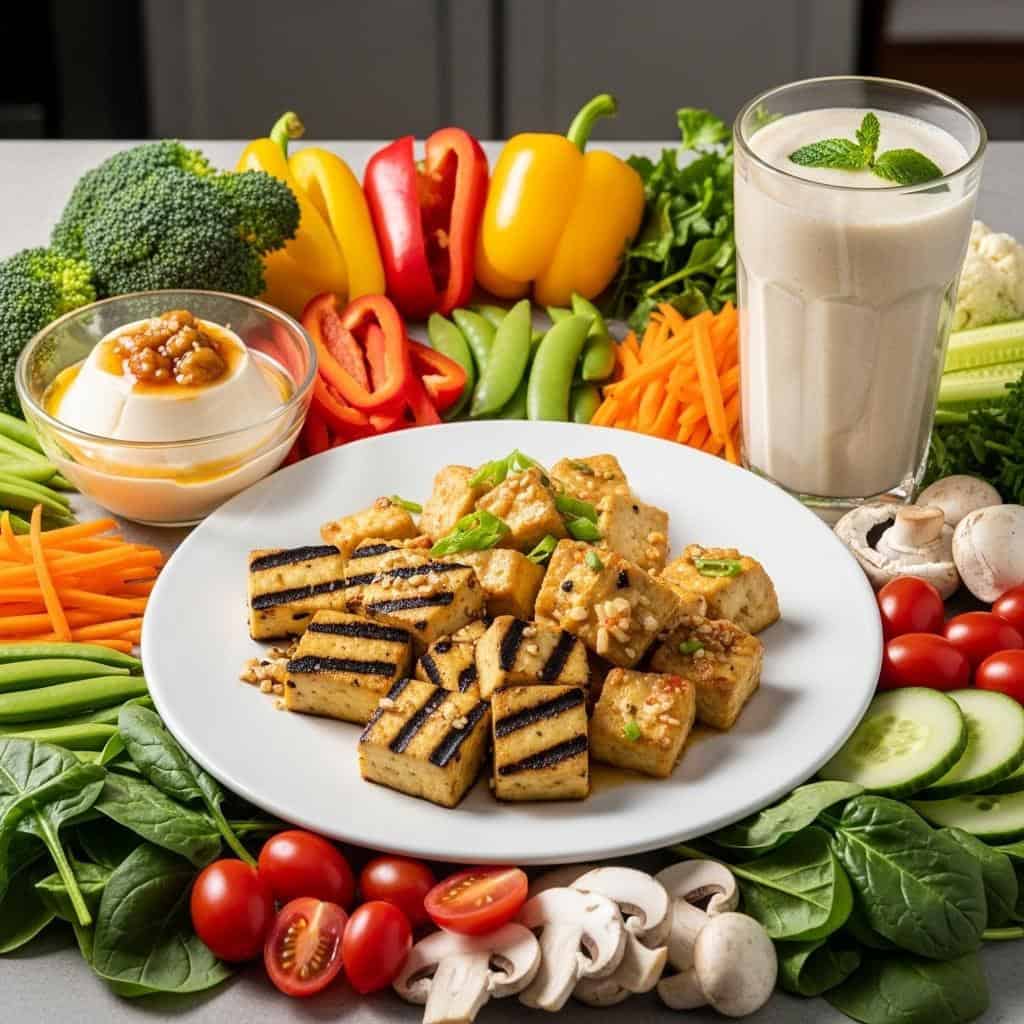
Tofu is a plant-based protein staple, offering about 8 grams of protein per 100 grams and serving as a key ingredient in vegetarian and vegan diets. Its adaptability allows it to absorb flavors in stir-fries, soups, and salads. Firm tofu contains more protein and holds its shape better for grilling or sautéing, while silken tofu is softer and ideal for smoothies or desserts. Both types provide essential amino acids and are a cholesterol-free alternative to animal proteins. For an in-depth look at tofu’s nutrition and uses, visit the Cleveland Clinic’s tofu guide.
10. Edamame
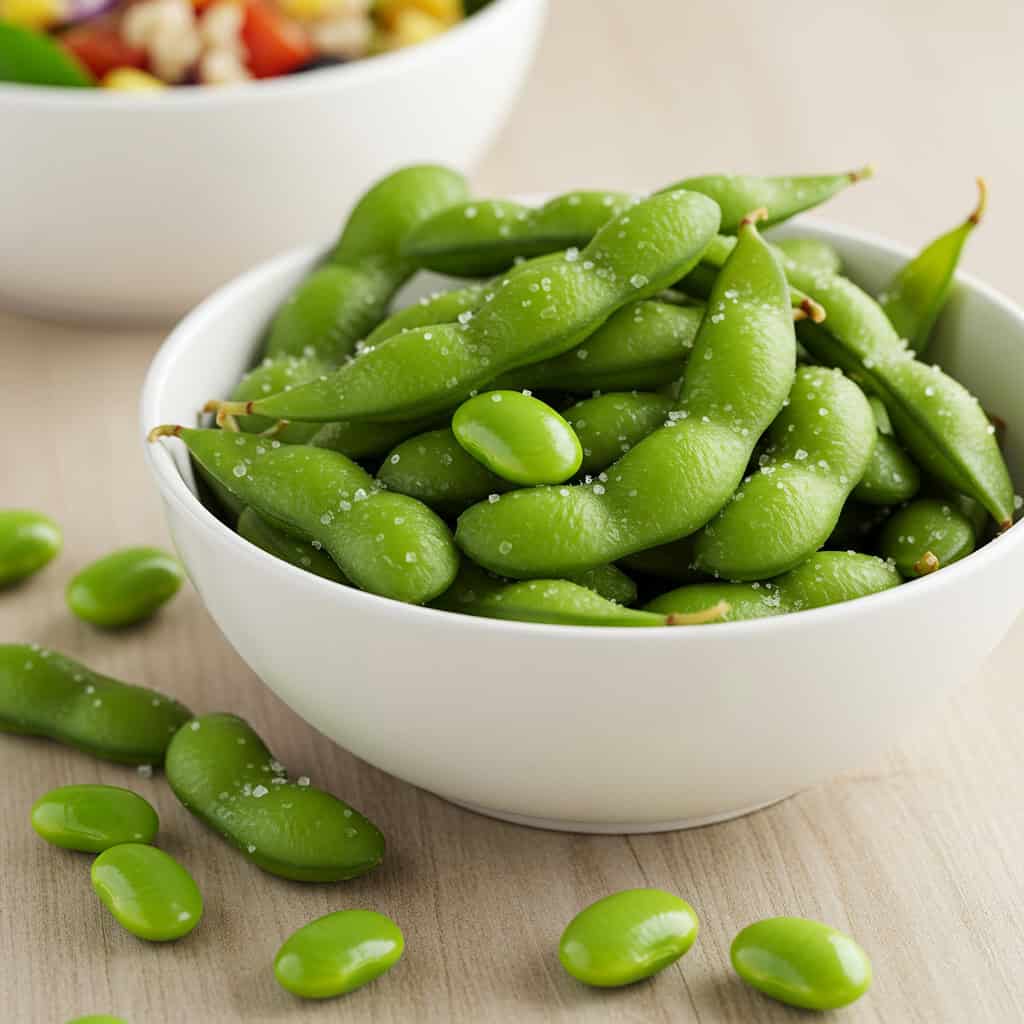
Edamame are young, whole soybeans and an exceptional source of plant-based protein, providing about 11 grams per 100 grams. Unlike processed soy products, edamame retains all the benefits of whole soy, including fiber, vitamins, and minerals. Edamame is commonly enjoyed steamed and lightly salted as a snack or tossed into salads and grain bowls for a protein boost. Compared to tofu or tempeh, edamame offers a firmer texture and a mildly sweet, nutty flavor. For more information on its nutrition and health advantages, see EatingWell’s edamame facts.
11. Quinoa
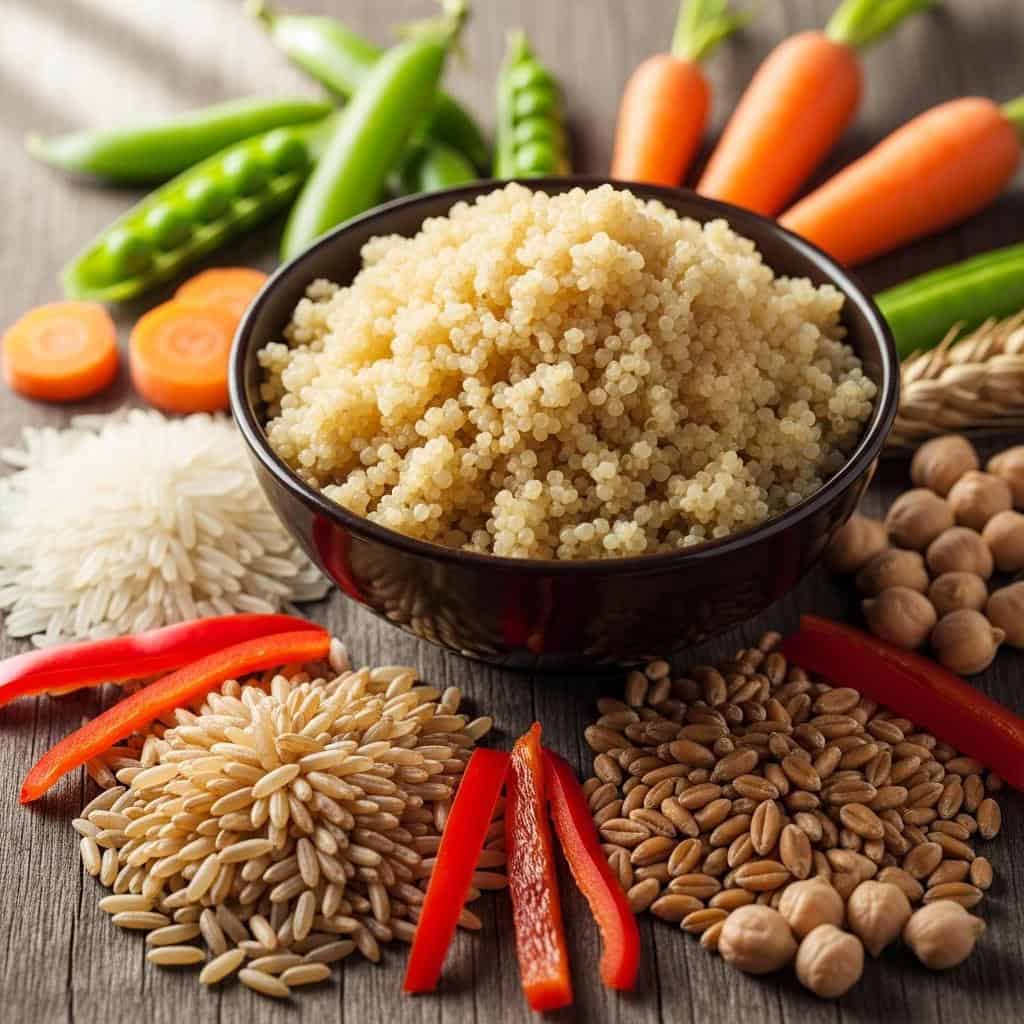
Quinoa stands out among plant foods as a complete protein, containing all nine essential amino acids necessary for muscle repair and growth. With about 8 grams of protein per cooked cup, it surpasses most grains like rice and wheat, which lack certain amino acids. Quinoa’s unique nutritional profile makes it an excellent choice for vegetarians and vegans seeking balanced protein sources. Its nutty flavor and fluffy texture work well in salads, bowls, and as a rice substitute. For a comprehensive overview of quinoa’s benefits, visit the Harvard T.H. Chan School of Public Health.
12. Turkey Breast
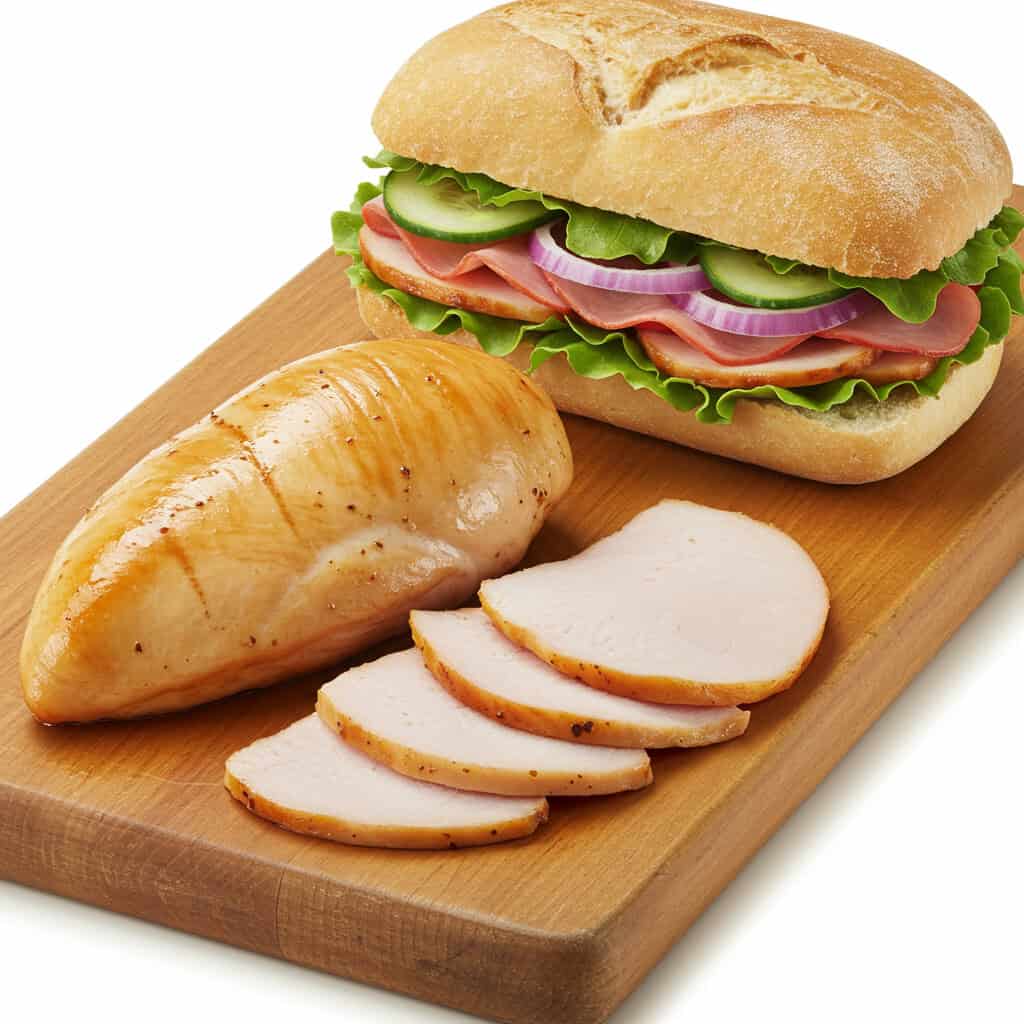
Turkey breast is an excellent choice for those seeking lean protein, offering around 29 grams of protein and very little fat per 100 grams. Its mild taste and tender texture make it suitable for a variety of dishes, from sandwiches to stir-fries. Unlike processed deli meats, fresh turkey breast is free from excess sodium and preservatives, making it a healthier option for muscle fuel and overall wellness. Choosing roasted or grilled turkey breast maximizes its nutritional benefits. For more details on its health advantages, visit WebMD’s turkey health facts.
13. Black Beans
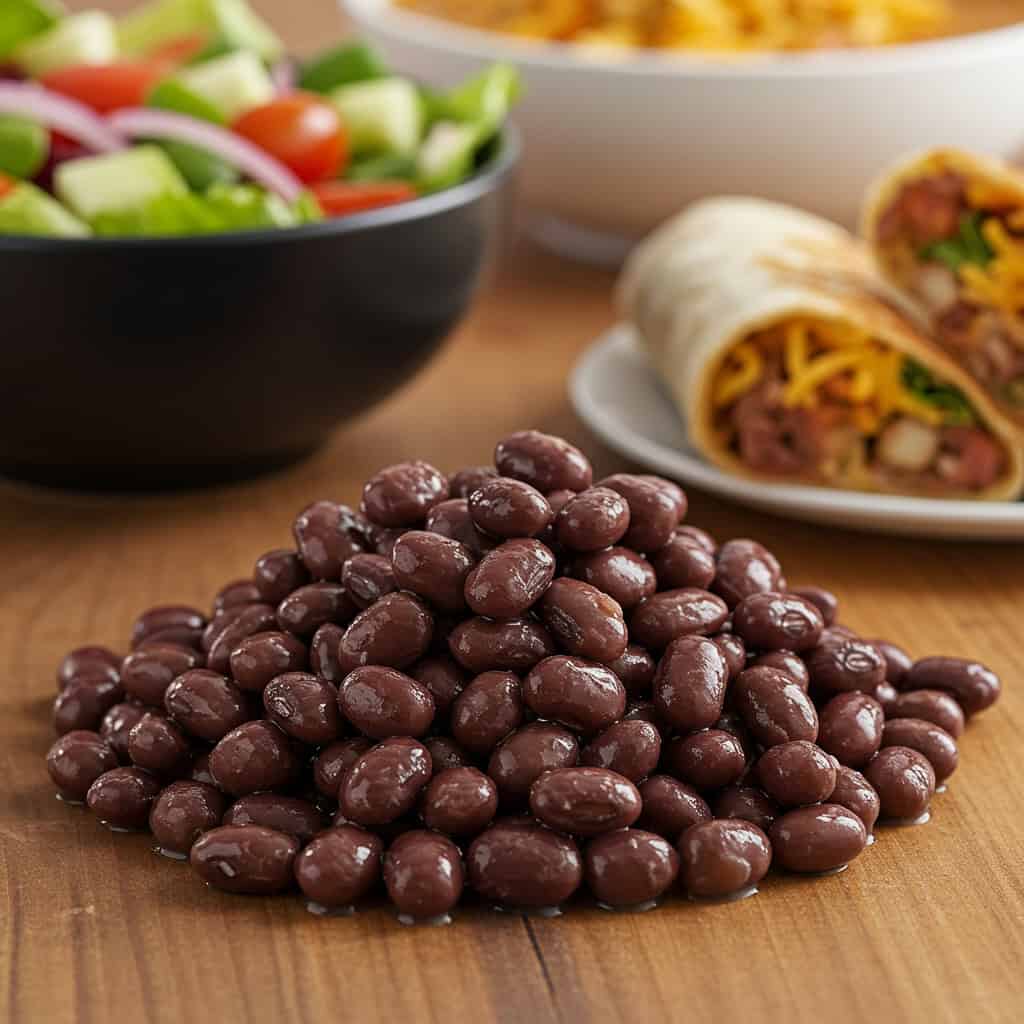
Black beans are a powerhouse in plant-based nutrition, delivering about 8 grams of protein and a high fiber content per 100 grams cooked. Their robust protein and fiber combination make them incredibly filling and supportive of muscle maintenance, especially for vegetarians and vegans. Compared to other beans such as kidney or pinto, black beans have a creamier texture and a slightly higher antioxidant content. They’re versatile in salads, soups, and burritos. To discover more about their nutrition and health benefits, visit Medical News Today on black beans.
14. Pumpkin Seeds
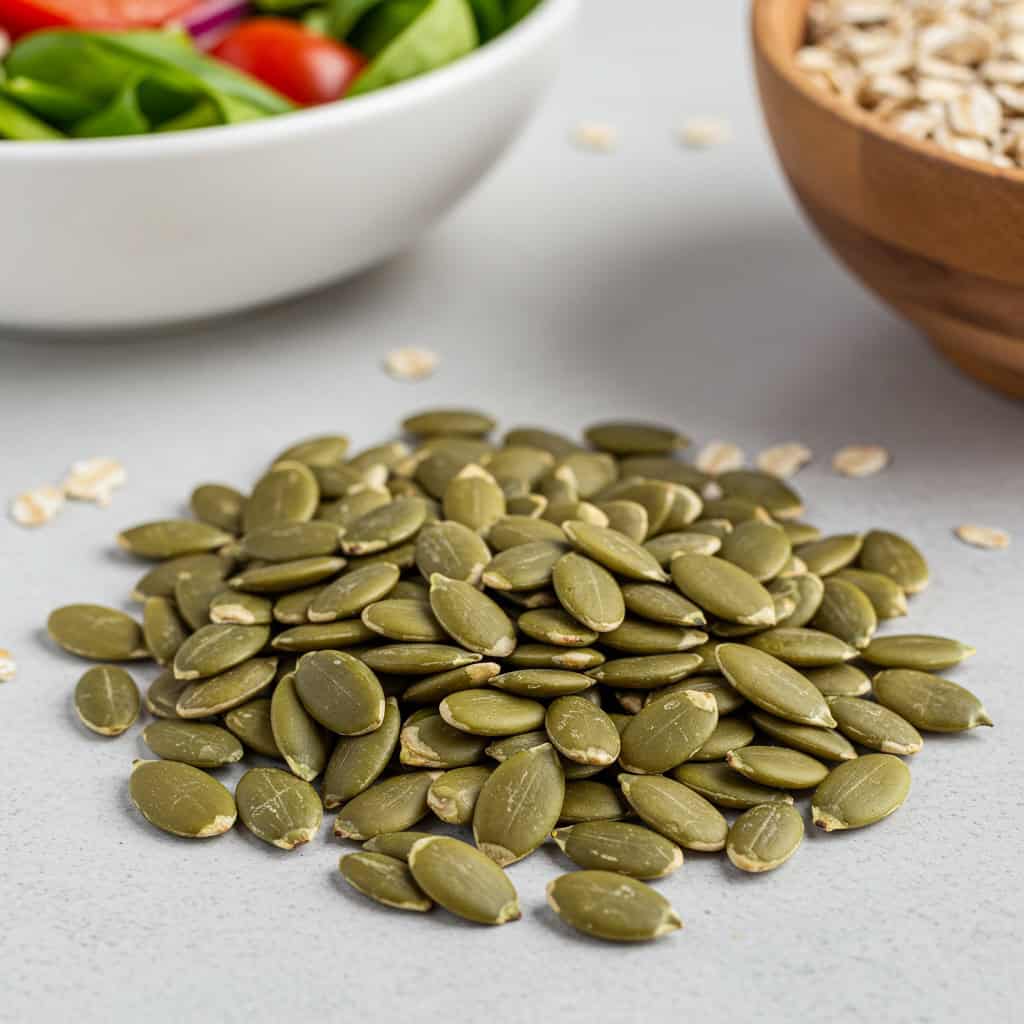
Pumpkin seeds, also known as pepitas, are a protein-rich snack, offering about 19 grams of protein per 100 grams. In addition to protein, they are packed with minerals like magnesium, zinc, and iron, which are important for muscle function and recovery. Compared to other seeds and nuts, pumpkin seeds provide more protein per serving and a unique blend of nutrients. They can be sprinkled on salads, added to oatmeal, or enjoyed on their own. For a detailed look at their nutritional value, see Healthline’s pumpkin seed nutrition.
15. Skim Milk
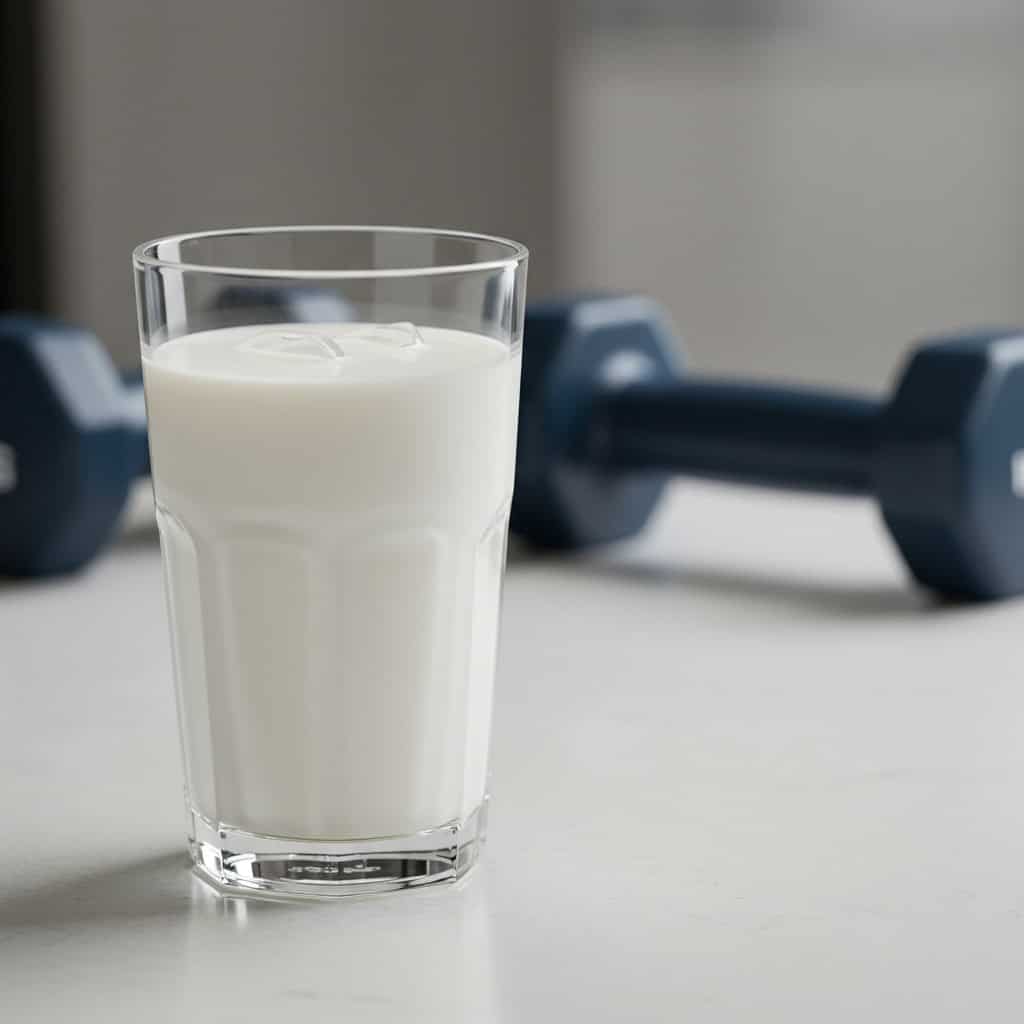
Skim milk is a valuable source of high-quality protein, providing about 3.4 grams per 100 milliliters with minimal fat content. This makes it an excellent choice for post-workout recovery shakes, supplying essential amino acids for muscle repair without the extra calories from fat found in whole milk. Skim milk also delivers important nutrients like calcium and vitamin D. Compared to whole milk, it’s lighter but still supports hydration and recovery. For more information on the nutritional benefits of dairy, visit the CDC’s dairy nutrition facts.
Conclusion
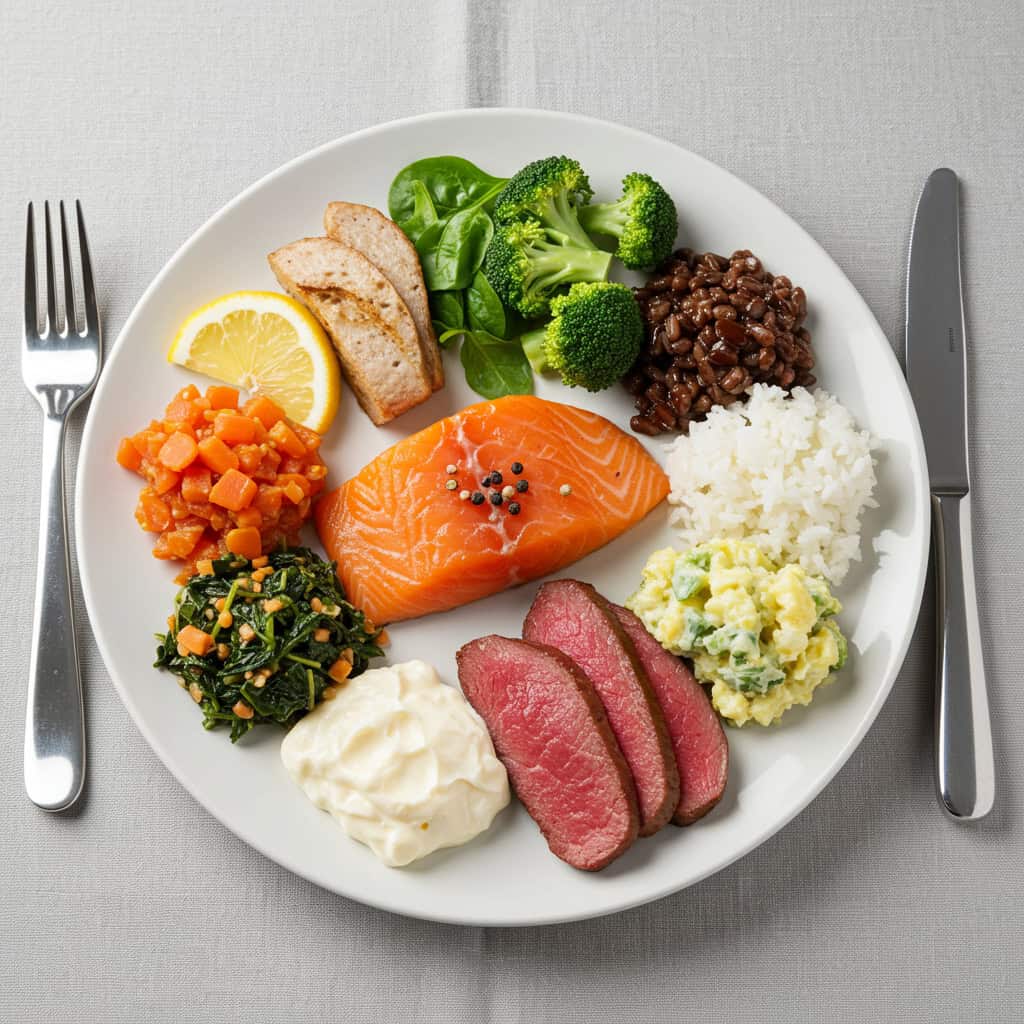
Including a diverse range of protein-rich foods in your diet is essential for effective muscle repair, growth, and overall health. From lean meats and fish to plant-based sources and dairy, these options cater to various preferences and nutritional needs. Strive for balance and variety to maximize muscle support and overall wellness. For personalized guidance and more information on integrating protein into your meals, consult reliable resources such as the USDA’s Protein Foods Group and the Harvard Nutrition Source.






